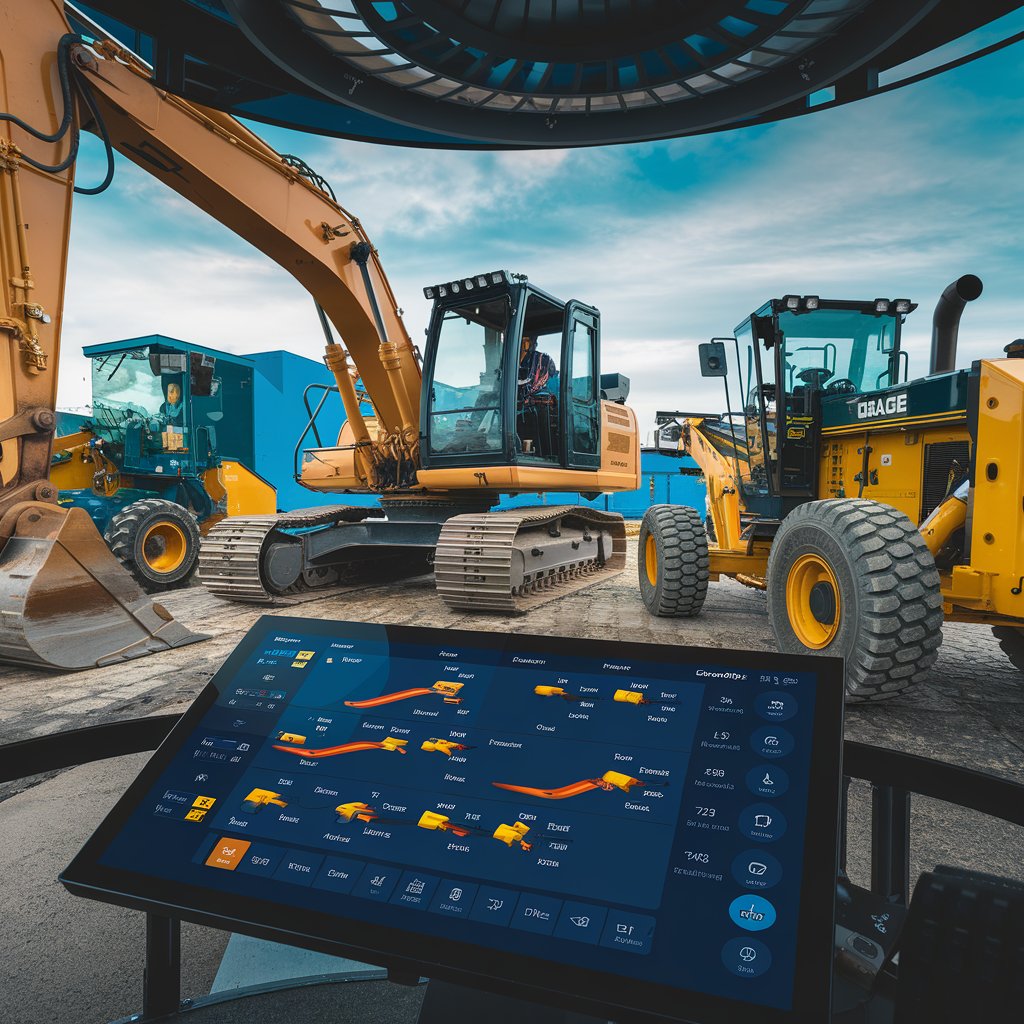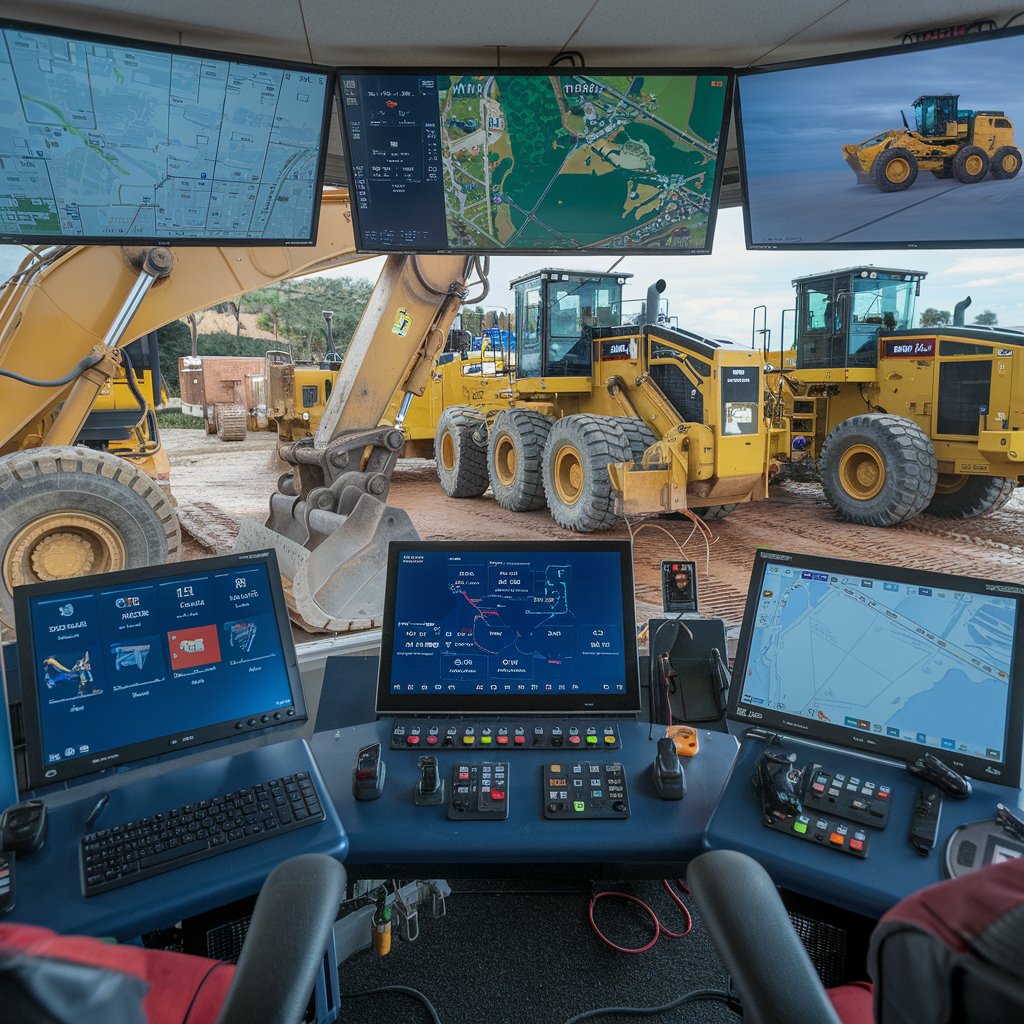The U.S. industrial automation landscape is undergoing a transformative revolution, thanks to advancements in machine control systems. As businesses across sectors strive for greater operational efficiency, precision, and cost-effectiveness, machine control systems have emerged as the key enabler. These systems, which include advanced hardware and software tools, are at the forefront of Industry 4.0, helping industries optimize production processes, enhance safety, and foster innovation. From manufacturing to construction, machine control systems are reshaping the way U.S. industries operate, setting the stage for a smarter, more automated future.

The Role of Machine Control Systems in Industrial Automation
Machine control systems are designed to control the operation of machinery in real time, ensuring that processes are carried out with high precision and minimal human intervention. By integrating cutting-edge technologies like robotics, artificial intelligence (AI), sensors, and real-time data analytics, machine control systems enable automation that enhances productivity, reduces errors, and improves quality.
In the U.S., industries such as manufacturing, construction, mining, and agriculture are increasingly relying on these systems to streamline operations and stay competitive. From autonomous robots on factory floors to GPS-guided construction machinery, machine control systems are becoming a crucial part of the automation ecosystem, driving new levels of efficiency and precision.
Key Technologies Driving the Evolution of Machine Control Systems
Several key technological advancements are shaping the future of machine control systems, contributing to their widespread adoption across U.S. industries.
1. Real-Time Data Analytics
The use of real-time data analytics allows machine control systems to make instantaneous decisions based on up-to-the-minute information. This capability is especially crucial in industries like manufacturing, where even small inefficiencies can lead to substantial cost increases. By collecting and processing data in real time, machine control systems can detect problems early, optimize production workflows, and ensure that machinery is operating at peak efficiency.
2. IoT Integration
The Internet of Things (IoT) has unlocked new possibilities for machine control systems by enabling interconnected devices to communicate with each other and exchange data seamlessly. Sensors embedded within machinery collect critical operational data, which can be accessed remotely, offering plant managers real-time insights into performance, wear and tear, and potential failures. IoT integration enhances predictive maintenance, reduces downtime, and helps ensure that machinery operates at optimal levels for longer periods.
Download PDF Brochure @
https://www.marketsandmarkets.com/pdfdownloadNew.asp?id=62579001
3. Automation and Robotics
In industries like manufacturing and construction, robotics plays a vital role in advancing automation. Machine control systems now leverage advanced robotics, including autonomous mobile robots (AMRs), drones, and robotic arms, to carry out tasks such as assembly, packaging, and material handling. These robots are equipped with sophisticated machine control systems that allow them to perform complex tasks with high precision, significantly reducing human error and improving safety.
4. GPS and Geospatial Technology
Machine control systems in the construction and mining sectors benefit greatly from GPS and geospatial technologies. These systems enable high-precision guidance, allowing construction equipment to work with pinpoint accuracy. For example, bulldozers, excavators, and graders can be equipped with GPS machine control systems that ensure they are operating at the correct elevation and position. This level of control reduces rework, improves project timelines, and minimizes waste.
Global machine control system Industry
The global machine control system Industry size is projected to grow from USD 5.1 billion in 2023 to USD 7.3 billion by 2028 at CAGR of 7.4% during the forecast period. The key factors fueling the growth of this market include the anticipated increase in demand driven by the growth of the construction industry and elimination of bulk earthworks setout and surging pegging.

Impact on U.S. Manufacturing and Industrial Sectors
Machine control systems are making a significant impact across various U.S. industries, particularly in manufacturing, construction, and mining. Here’s how these systems are changing the game:
Manufacturing: Streamlining Production and Improving Quality
In U.S. manufacturing, machine control systems are automating complex processes, improving product quality, and reducing operational costs. Precision manufacturing techniques enabled by these systems ensure consistent and high-quality outputs, making it easier to meet customer demands for customizations. Additionally, predictive maintenance facilitated by real-time monitoring of machine health helps prevent unexpected breakdowns, reducing downtime and increasing overall equipment effectiveness (OEE).
Construction: Enhancing Precision and Reducing Costs
In construction, machine control systems are revolutionizing how projects are executed. By enabling equipment like excavators, graders, and bulldozers to operate autonomously with high precision, these systems are reducing the likelihood of errors that can lead to costly rework. GPS-guided machinery allows for exact grading and leveling, improving project timelines and resource utilization. The adoption of machine control systems in construction has also resulted in reduced fuel consumption and less material wastage, making projects more environmentally sustainable.
Mining: Improving Safety and Operational Efficiency
Machine control systems are playing a pivotal role in improving safety and efficiency in the mining industry. Autonomous haul trucks, drilling rigs, and excavators are increasingly controlled by machine control systems, reducing the need for human intervention in hazardous environments. These systems provide real-time data to operators, enabling better decision-making and resource management. The result is improved safety, reduced operational costs, and enhanced production rates.
Agriculture: Advancing Precision Farming
Agricultural machinery is also benefiting from machine control systems. With the integration of GPS and IoT technologies, farmers can optimize planting, irrigation, and harvesting processes, improving crop yields while minimizing resource use. Machine control systems enable precision farming practices that reduce fuel consumption, optimize water usage, and ensure better soil health, contributing to more sustainable agricultural practices.
Future Outlook: The Road Ahead for Machine Control Systems
As U.S. industries continue to embrace automation, the demand for advanced machine control systems is expected to rise. The future of machine control technology will likely see the increased use of artificial intelligence (AI) and machine learning (ML) algorithms, which will further improve decision-making processes and enable more autonomous operations.
Additionally, advancements in 5G technology will pave the way for faster, more reliable connectivity, allowing for seamless communication between devices and systems. This will enable real-time control and monitoring of machines, even in remote or difficult-to-reach environments. The integration of augmented reality (AR) and virtual reality (VR) with machine control systems is also on the horizon, offering even more innovative ways to manage and monitor operations.
Conclusion: Empowering the Future of U.S. Industrial Automation
Advanced machine control systems are undeniably shaping the future of U.S. industrial automation. By combining automation, robotics, real-time data, and precision technologies, these systems are driving industries toward greater efficiency, cost savings, and safety. As technological advancements continue to evolve, machine control systems will play a pivotal role in helping U.S. industries remain competitive in an increasingly automated and interconnected world. With the continued rise of Industry 4.0, machine control systems are set to redefine the future of industrial operations across the United States.
